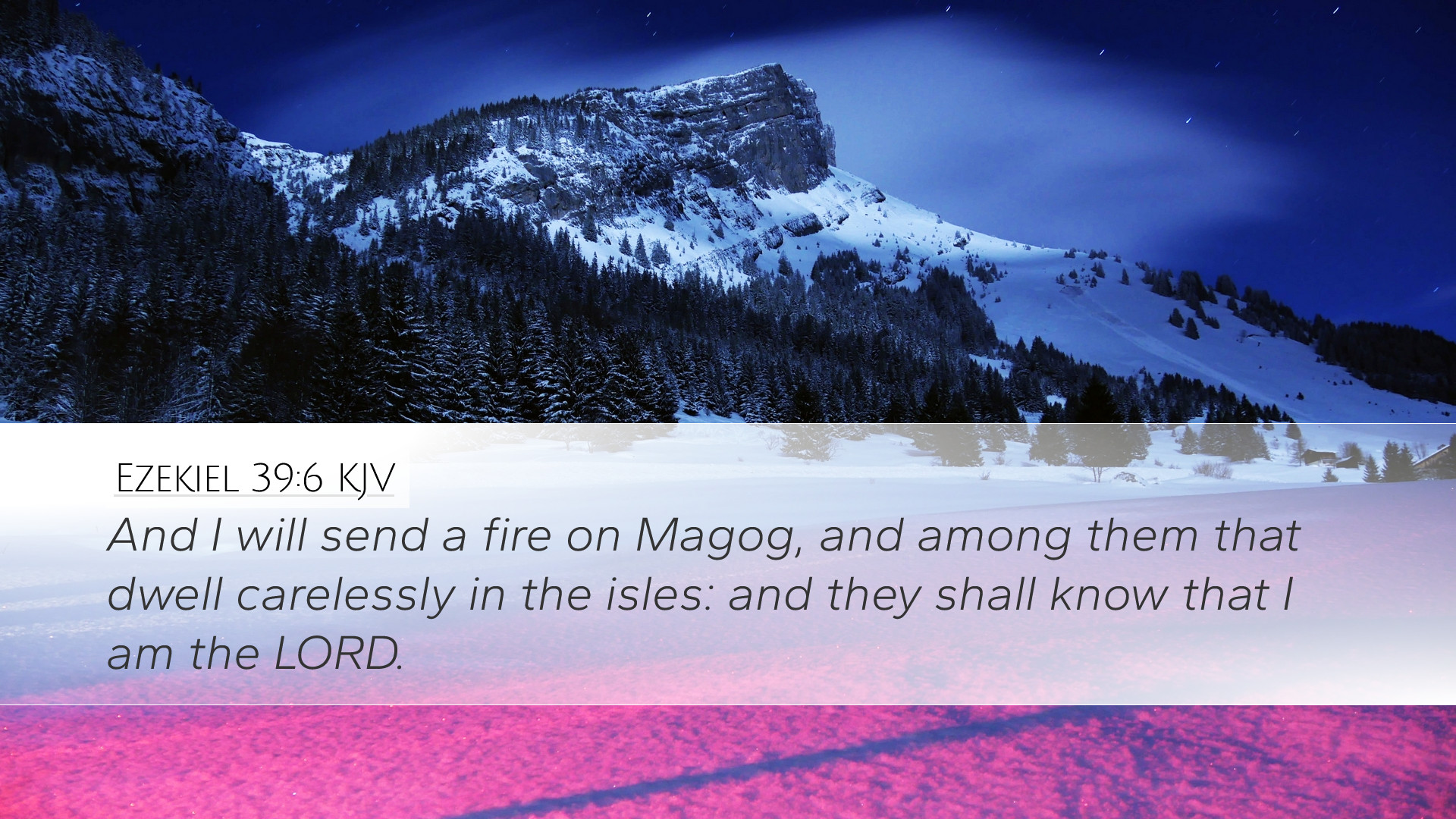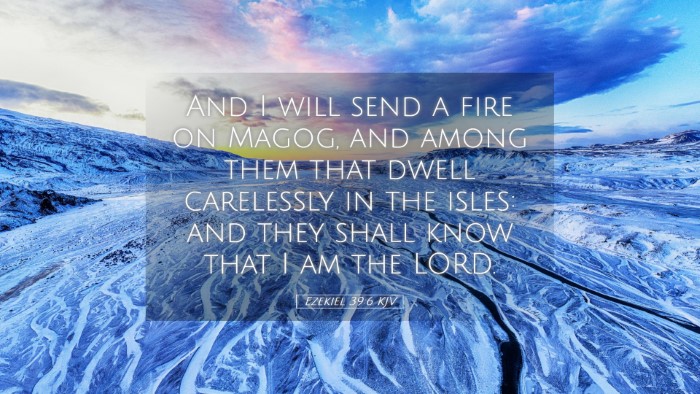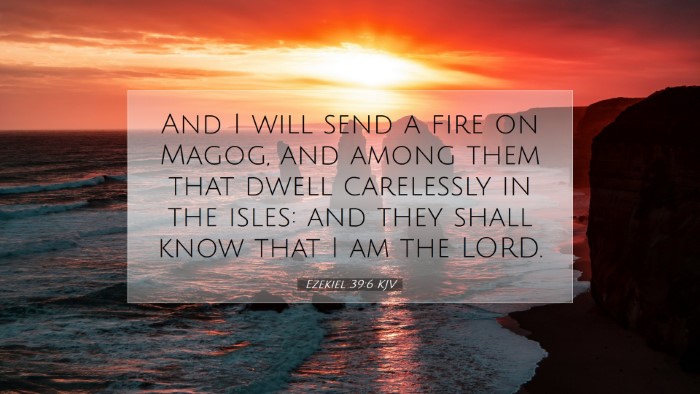Ezekiel 39:6 - Commentary Summary
Verse Context: Ezekiel 39:6 states, "And I will send a fire on Magog, and among them that dwell carelessly in the isles: and they shall know that I am the LORD." This verse is part of a broader prophetic discourse dealing with God's judgment upon the nations, particularly focusing on Magog and its allies.
Historical and Theological Background
The mention of Magog is crucial in understanding the scope of God’s judgment. Traditionally identified with a land located in the north, Magog represents not just a physical nation but symbolizes the enemies of Israel who oppose God's will. Throughout the biblical text, particularly in prophetic literature, nations are often anthropomorphized to represent spiritual and moral conditions. In this light, Magog embodies the force of evil that God ultimately confronts.
Insights from Matthew Henry
Henry provides a robust understanding of this prophetic text. He emphasizes that the fire sent upon Magog serves a dual purpose: to purify the land and to demonstrate God’s sovereignty over all nations.
- The Purpose of Divine Judgment: Henry notes that God’s judgments are aimed at revealing His power and glory. The fire represents divine wrath against those who dwell carelessly.
- Carelessness of Nations: He points out the spiritual condition of these nations, who, in their complacency, ignore the warning of God's impending judgment. This serves as a warning to complacent believers in any age.
- Knowledge of the Lord: The culmination of God’s actions is the revealed knowledge of His presence among the nations, leading to a recognition of His lordship.
Insights from Albert Barnes
Barnes’ commentary delves deeper into the imagery of fire. He elaborates that the fire in this context may not only signify destruction but also purification. A similar motif can be found within the book of Isaiah and the New Testament, indicating God’s refining nature.
- Symbol of Fire: Barnes underscores that fire, used metaphorically, connotes judgment but also the purging of evil to prepare for the coming of God's kingdom.
- God's Sovereignty: By sending fire among those who dwell carelessly, God asserts His authority not just over His chosen people but over all the earth.
- Global Implications: He also highlights that God’s judgment extends even to distant lands ('isles'), illustrating that His reach and influence are universal.
Insights from Adam Clarke
Clarke offers a detailed analysis and provides cultural insights regarding the peoples of Magog and their moral standing. He emphasizes the importance of understanding the broader context of judgment within the prophetic tradition.
- Fire as Judgment: Clarke agrees with previous commentators regarding the judgment aspect but notes that fire can also signify the zeal of God's spirit manifesting against ungodliness.
- Spiritual Carelessness: He stresses that the carelessness of the people indicated their spiritual apathy, which is a warning to all believers across generations.
- Recognition of God: The phrase "and they shall know that I am the LORD" is pivotal. Clarke interprets this as a significant shift where the acknowledgment of God leads to a moral and spiritual awakening among the nations.
Thematic Applications
The implications of Ezekiel 39:6 are profound for contemporary readers, especially pastors and theologians as they seek to apply biblical prophecy in modern contexts.
- Relevance of Prophecy: Just as Ezekiel made clear the consequences of ignoring God, modern churches must call attention to the dangers of spiritual complacency.
- Purification through Judgment: The understanding that God’s judgments can lead to cleansing and renewal can be applied in pastoral care, emphasizing the need for repentance and spiritual revival.
- Global Witness: The idea that God’s judgment reaches all corners of the globe challenges believers to view the world through a missional lens, encouraging outreach to those considered distant or indifferent to the Gospel.
Conclusion
Ezekiel 39:6 reminds us that God is sovereign over all nations and that His judgments serve both to demonstrate His power and to prepare His people for His coming kingdom. The reflections of Henry, Barnes, and Clarke provide depth to our understanding, urging us to remain vigilant, aware, and responsive to God's call in a world often consumed by carelessness. For pastors, students, and theologians alike, this verse serves as a crucial reminder of the stakes involved in spiritual indifference and the importance of proclaiming the knowledge of the Lord to all nations.


